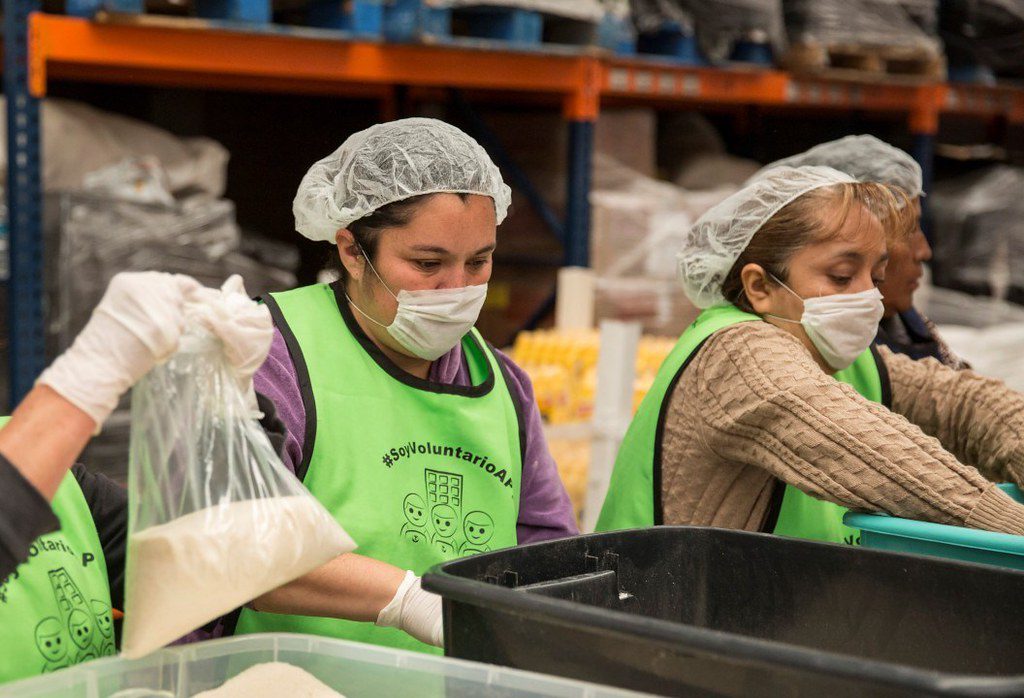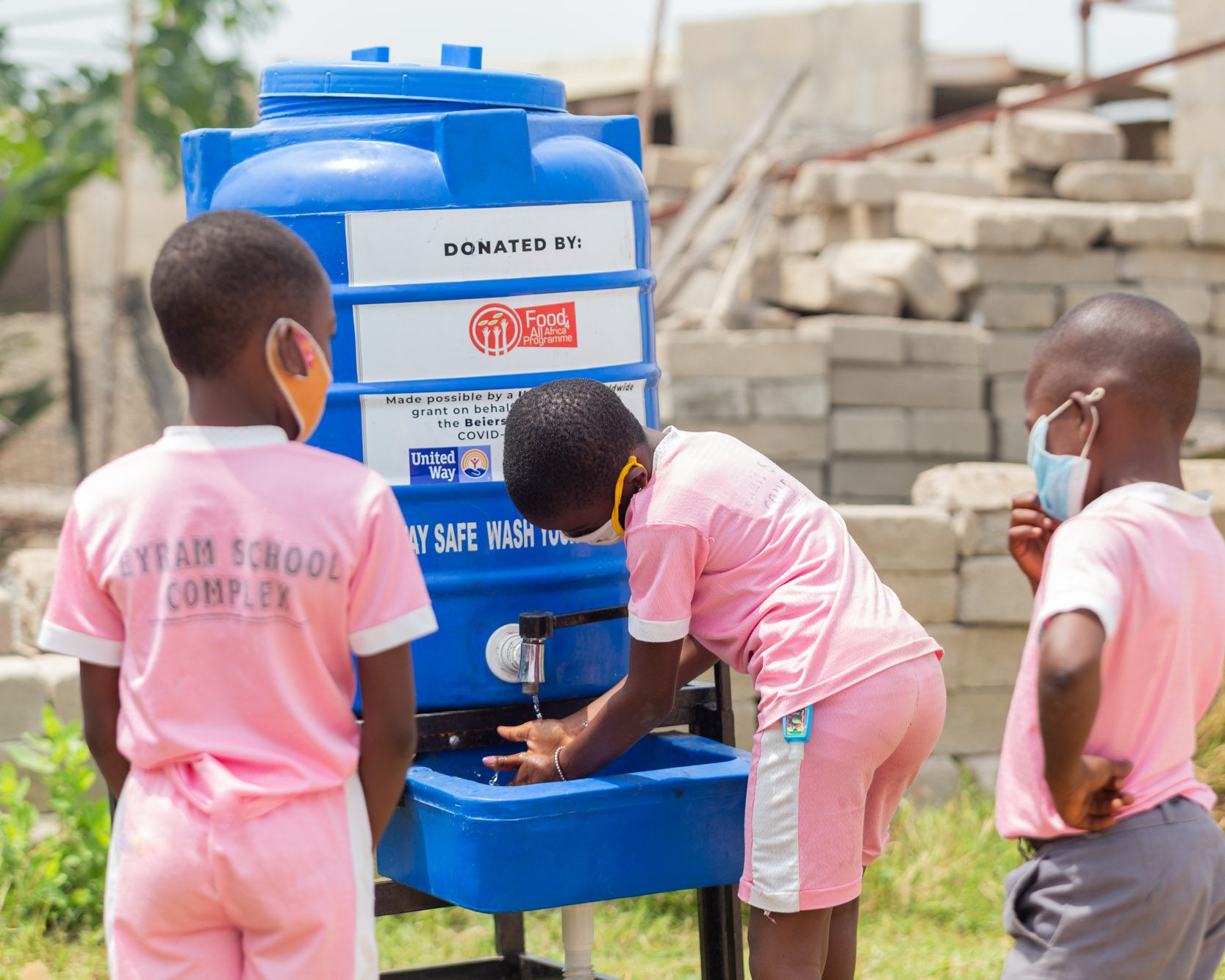Prior to the onset of COVID-19, food banks supported by The Global FoodBanking Network were already addressing child hunger, through establishing or supplementing programs run by schools and other organizations. However, the pandemic has further underscored the necessity of these programs for the health of children and their communities.
The World Food Programme estimated that by April 2020, 370 million school children in at least 161 countries were missing out on daily meals because of school closings. For many children around the world, the meal they receive in school is their only provision for the day. The impact of school-provided meals on children is particularly important as without it children may face hunger and malnutrition that could irreversibly jeopardize their physical and cognitive wellbeing.
A majority of GFN member food banks run child feeding programs, many of which include initiatives like food rations for weekends and school breaks and nutrition education programs. Of the thirty-eight food banks with child feeding programs, twenty-five run a school breakfast or lunch program. Despite school closures, in 2020, 17.6 million children (age 0 to 17 years) facing hunger received support through these programs and through general food distribution from Network food banks.
With in-person learning suspended and lockdowns from COVID-19 complicating the ways essential services like food banks operate, 46 percent of GFN-supported food banks established alternative models of serving school-age children.
Food banks proved flexible and creative in their efforts to continue supporting healthy child development during the pandemic. For example, some food banks started delivering weekly or monthly rations directly to the homes of children and their families. Others established satellite locations at daycare centers, school sites, or community agencies where families could obtain food with social distancing measures in place. Elsewhere, food banks set up temporary soup kitchens to prepare hot meals for children who previously relied on school meals.
Food banks in the Banco de Alimentos México (BAMX) network offer a variety of child feeding programs that endured throughout the pandemic. The School Nutrition Program at one of the BAMX food banks in Mexico City, Alimento para Todos (APT), aims to bridge the meal gap on weekends for students who rely on daily school meals. On Fridays, children are sent home with backpacks filled with staples like rice, beans, milk, canned fish, fruit and cereal. As schools have remained closed for more than a year, BAMX has partnered with groups in local communities to directly distribute these backpacks to students and their families. With the support of the global healthcare company Abbott’s foundation, the Abbott Fund, and Kellogg Company, long-standing partners with GFN, these programs have continued to reach children across Mexico throughout the pandemic.“The effect of COVID-19 and the deterioration of the economy impacted the lives of beneficiary families,” reported Ana Cristina Leyva Ramos, coordinator of nutrition and innovation at BAMX. “Most were left unemployed and without a livelihood to buy food and other basic necessities. That is why APT has continued directing the program to support families of school-age children.”APT’s School Nutrition Program is particularly unique because it provides more than straight food assistance. The program seeks to encourage students to stay in school despite the challenges of virtual learning, so it requires that students attend virtual classes to participate in the program.

Mexico City, Mexico, March 24, 2020: Volunteers pack food at Alimento para Todos program facility for children facing hunger in Mexico. (Photo: Alimento para Todos)
In addition to facing programmatic and logistics challenges, many government and privately funded school feeding programs around the world endured budget cuts over the 2020-2021 school year, leaving an even greater need to fill. GFN recognized this critical need and invested over $1 million into child hunger programs across the Network since the start of the pandemic.
For example, in Guatemala, some schools were not able to continue their school feeding programs as budget cuts meant that limited resources had to go to school operational costs. Desarollo en Movimiento (DEM), a GFN-supported food bank, stepped in to fill the gap and, through a grant from GFN, is providing a daily breakfast to children of two schools. Support from private donors like Kellogg Company has allowed the program to expand by 20 percent, reaching a total of 425 students today.
“COVID-19 has been another example where food banks are really agile and can adapt very quickly to the changing circumstances,” said Monica Dykas, director of GFN’s child feeding programs. “Looking ahead, the focus is how these programs can provide the add-on benefits beyond food assistance.” Around the Network, child feeding programs will continue to be integral to the work of food banks as they support the next generation and bolster the resiliency of communities for years to come.
To learn more about the work GFN food banks carried out in 2020, read the summary of what we learned from the latest annual survey of our Network.

